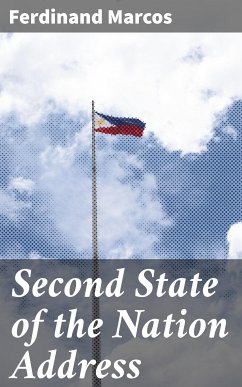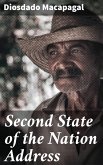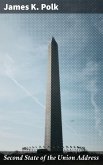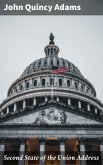In Ferdinand Marcos's "Second State of the Nation Address," delivered on January 24, 1969, the narrative is steeped in the political landscape of post-colonial Philippines. Marcos employs a formal, authoritative tone, reflecting his vision for a nation striving for development amidst the complexities of political upheaval. The address serves not only as a policy outline but also as a rhetorical tool, infused with patriotic fervor and aspirations for economic progress, as it sketches an ambitious roadmap for modernization in various sectors, including infrastructure and education, while simultaneously addressing national sovereignty and security. This text not only captures the ethos of an emerging national identity but also resonates within the broader context of Cold War politics and regional dynamics in Southeast Asia. Ferdinand Marcos, who served as President from 1965 until 1986, crafted this address against a backdrop of contentious politics and a desire for stability and growth. His tenure was marked by martial law, which he instituted shortly thereafter, aiming to consolidate power and curb dissent. The address reflects Marcos's multifaceted persona as a leader, showcasing his aspirations and justifications amidst a complex socio-political landscape that has shaped Filipino identity. This book is essential for readers interested in Philippine history, political rhetoric, and the intricate balance of power during a tumultuous period. Marcos's eloquent discourse offers profound insights into his vision for the Philippines, making it a crucial text for scholars and enthusiasts of political science and history alike.
Dieser Download kann aus rechtlichen Gründen nur mit Rechnungsadresse in A, B, BG, CY, CZ, D, DK, EW, E, FIN, F, GR, H, IRL, I, LT, L, LR, M, NL, PL, P, R, S, SLO, SK ausgeliefert werden.









